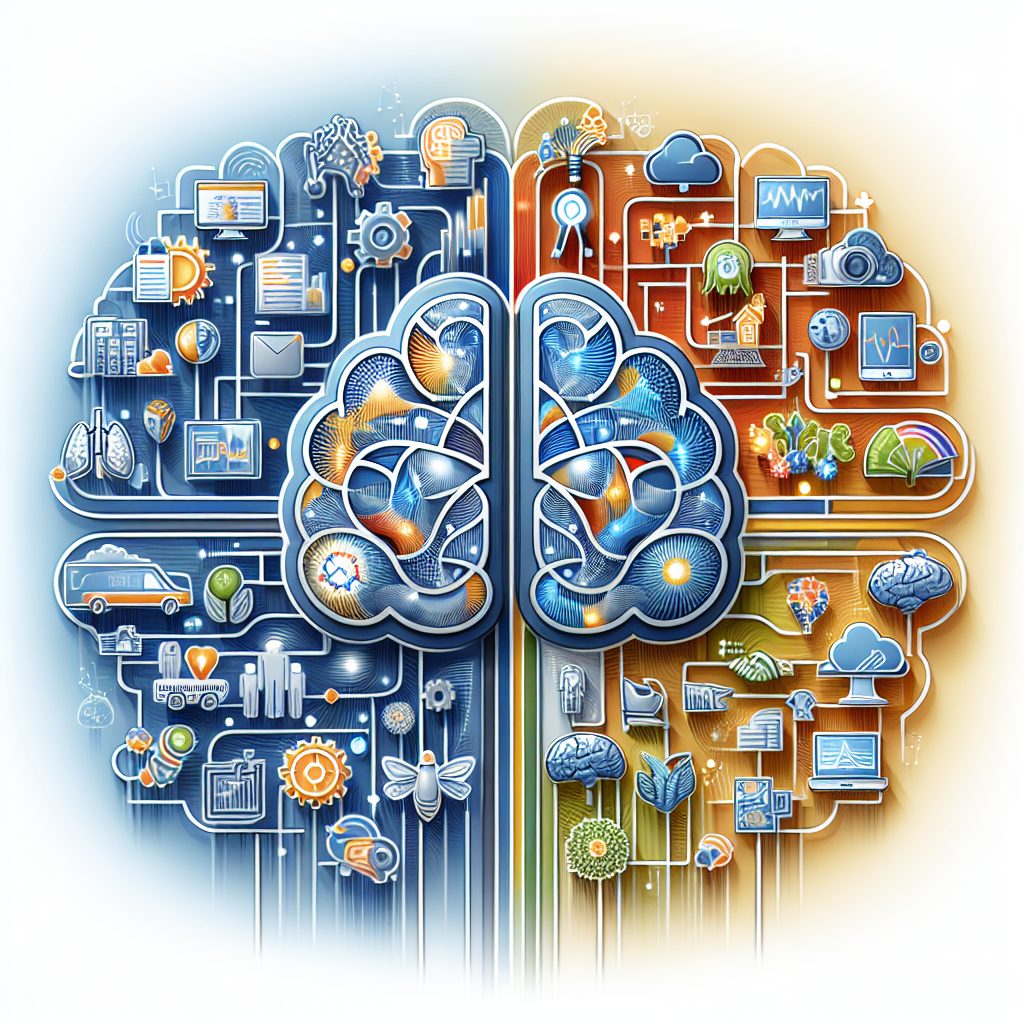Artificial General Intelligence (AGI) has the potential to revolutionize society and the economy in ways we can only imagine. AGI refers to machines that have the ability to understand and learn any intellectual task that a human being can do. This means that AGI could potentially outperform humans in a wide range of tasks, leading to significant changes in the way we live and work. In this article, we will explore the impact of AGI on society and the economy, as well as address some frequently asked questions about this emerging technology.
Impact on Society:
1. Job Displacement: One of the biggest concerns surrounding AGI is the potential for widespread job displacement. As machines become more intelligent and capable of performing tasks that were once reserved for humans, many jobs could be at risk of automation. This could lead to a significant shift in the labor market, with many workers being displaced and needing to retrain for new roles.
2. Increased Productivity: On the flip side, AGI has the potential to greatly increase productivity in many industries. Machines that can think and learn like humans could streamline processes, optimize workflows, and improve efficiency in ways that were previously impossible. This could lead to greater output, lower costs, and ultimately higher living standards for society as a whole.
3. Healthcare Advancements: AGI has the potential to revolutionize the healthcare industry, with machines capable of diagnosing diseases, developing treatment plans, and even performing surgeries with greater accuracy and precision than human doctors. This could lead to improved healthcare outcomes, reduced costs, and greater access to medical services for all.
4. Ethical Considerations: As AGI becomes more advanced, we will need to grapple with a host of ethical considerations. For example, how do we ensure that machines make ethical decisions in complex situations? How do we protect the privacy and security of individuals in a world where machines can think and learn independently? These are just a few of the ethical dilemmas that society will need to address as AGI becomes more prevalent.
Impact on the Economy:
1. Disruption of Industries: AGI has the potential to disrupt a wide range of industries, from manufacturing to finance to transportation. As machines become more intelligent and capable of performing complex tasks, many traditional jobs could be at risk of automation. This could lead to significant upheaval in the labor market, with many workers needing to retrain for new roles or face unemployment.
2. Economic Growth: Despite the potential for job displacement, AGI also has the potential to drive economic growth in new and unexpected ways. Machines that can think and learn like humans could lead to greater innovation, increased productivity, and new opportunities for entrepreneurship. This could lead to the creation of new industries, new jobs, and ultimately a stronger and more dynamic economy.
3. Income Inequality: One of the biggest challenges posed by AGI is the potential for increased income inequality. As machines become more intelligent and capable of performing tasks that were once reserved for humans, the value of human labor could decrease, leading to a greater concentration of wealth among those who own and control the machines. This could exacerbate existing income inequalities and create new challenges for society to address.
4. Regulatory Challenges: As AGI becomes more prevalent, policymakers will need to grapple with a host of regulatory challenges. How do we ensure that machines are safe and reliable? How do we protect consumers from potential harms? How do we address the ethical dilemmas posed by machines that can think and learn independently? These are just a few of the regulatory challenges that society will need to address as AGI becomes more widespread.
Frequently Asked Questions:
1. What is AGI?
AGI refers to machines that have the ability to understand and learn any intellectual task that a human being can do. This means that AGI could potentially outperform humans in a wide range of tasks, leading to significant changes in the way we live and work.
2. How is AGI different from Artificial Intelligence (AI)?
AGI is different from AI in that AI refers to machines that can perform specific tasks or solve specific problems, while AGI refers to machines that can understand and learn any intellectual task that a human being can do. AGI is often considered the next step in the evolution of AI, with the potential to revolutionize society and the economy in ways we can only imagine.
3. What are some potential benefits of AGI?
Some potential benefits of AGI include increased productivity, improved healthcare outcomes, and greater innovation in a wide range of industries. AGI has the potential to drive economic growth, create new industries, and ultimately improve living standards for society as a whole.
4. What are some potential risks of AGI?
Some potential risks of AGI include job displacement, income inequality, and ethical dilemmas. As machines become more intelligent and capable of performing tasks that were once reserved for humans, many traditional jobs could be at risk of automation. This could lead to significant upheaval in the labor market and new challenges for society to address.
5. How can society prepare for the impact of AGI?
Society can prepare for the impact of AGI by investing in education and training programs to help workers retrain for new roles, by developing ethical guidelines and regulatory frameworks to govern the use of AGI, and by fostering dialogue and collaboration between policymakers, technologists, and other stakeholders to address the challenges posed by this emerging technology.
In conclusion, the impact of AGI on society and the economy is likely to be profound and far-reaching. While there are many potential benefits of AGI, such as increased productivity, improved healthcare outcomes, and greater innovation, there are also significant risks, such as job displacement, income inequality, and ethical dilemmas. As AGI becomes more prevalent, society will need to grapple with a host of challenges and opportunities in order to harness the full potential of this emerging technology.

